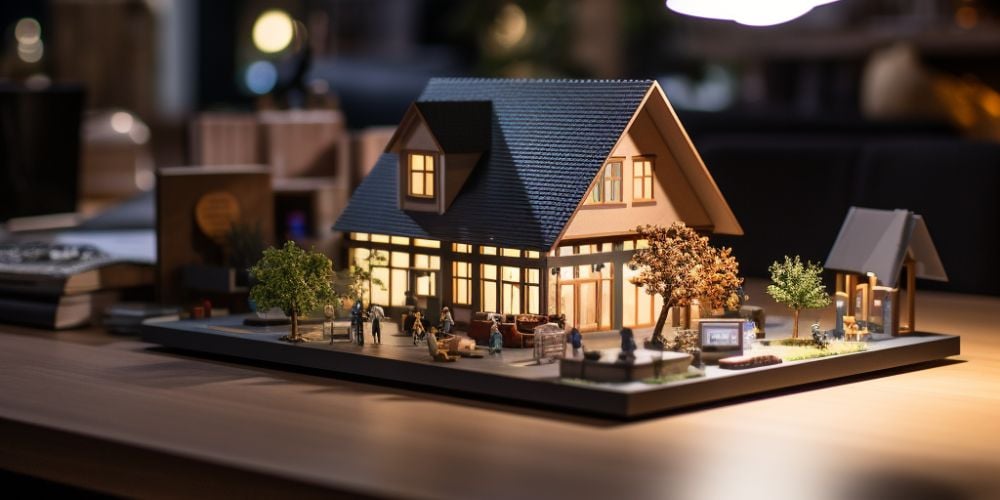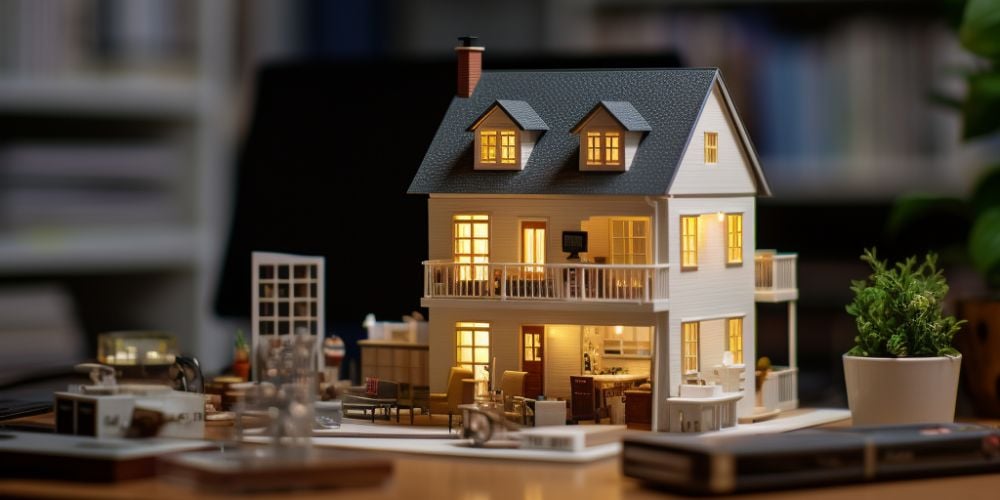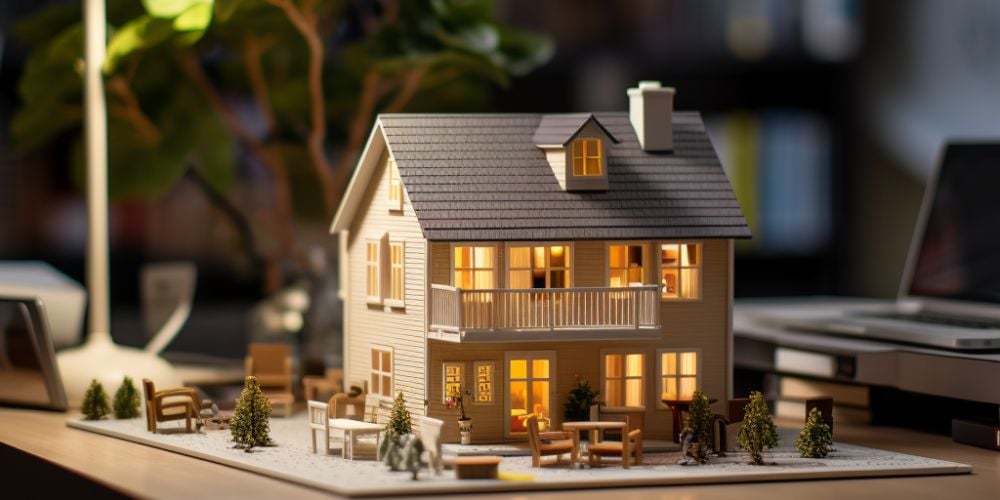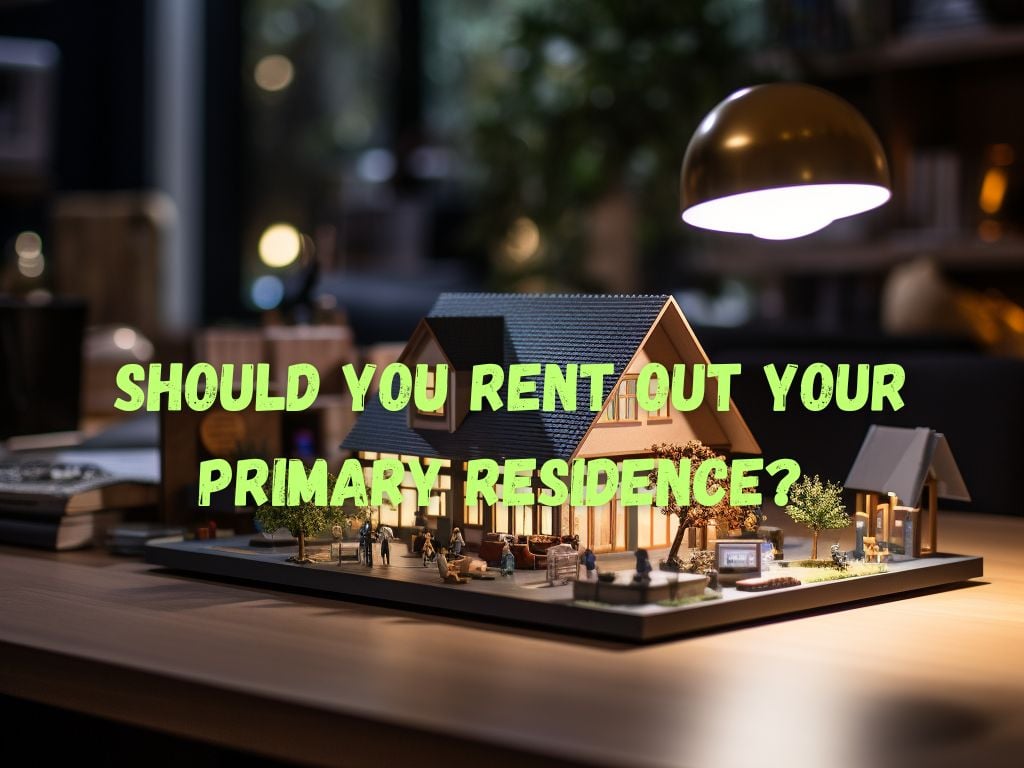Owning a primary residence gives you a sense of stability and security.
However, circumstances may arise where you start considering the option of renting out your primary residence.
But, should you rent out your primary residence?
Renting your primary residence is a significant decision, and that’s why you should be aware with all the factors that are associated with this call.
This article explores the pros and cons of renting your primary residence and provides valuable insights to help you make an informed decision.
Can You Legally Rent Out Your Primary Residence?
Before you decide to turn your home into a rental property, it’s important to understand the legal requirements involved.
Research your local laws and regulations regarding landlord-tenant relationships and rental properties.
Familiarize yourself with any permits or licenses required for renting out a property and comply with them.

Should You Rent Out Your Primary Residence?
Deciding whether to rent out your primary residence is a significant decision that requires careful consideration.
Factors such as your financial situation, personal goals, and local rental market conditions all play a role in determining if renting your primary residence is a viable option.
If you are looking to generate additional income, renting out your primary residence can provide a steady source of cash flow.
It allows you to leverage your property as an investment asset and potentially cover mortgage payments or other expenses. Rental income can also provide tax benefits, as certain expenses can be deducted.
However, becoming a landlord comes with responsibilities and risks. Property damage, finding responsible tenants, and potential strained relationships are all factors that need to be considered.
Additionally, converting your home into a rental property may require upfront costs for maintenance, permits, and property modifications.
Before making the decision to rent your primary residence, carefully evaluate your financial capacity, analyze the local rental market, and assess your willingness to take on the responsibilities of being a landlord.
Consulting with professionals, such as tax advisors and property managers, can also help you make an informed choice.
Pros of Renting Your Primary Residence
Generating Additional Income
One of the key advantages of renting your primary residence is the opportunity to generate additional income.
Renting out a portion or the entire property can significantly supplement your monthly cash flow, and help cover mortgage payments or other expenses.
Tax Benefits for Landlords
Renting out your primary residence can provide tax benefits. You may be eligible to deduct certain expenses such as mortgage interest, property taxes, insurance premiums, and repairs.
Consult with a tax professional to understand the specific deductions available in your situation.
Increased Flexibility and Mobility
Renting out your primary residence allows you to maintain flexibility and mobility.
It provides the freedom to move to a new location or downsize without the pressure of selling your property quickly. You can always return to your home if circumstances change.

Cons of Renting Your Primary Residence
Potential Property Damage and Liability Issues
Renting out your home comes with the risk of potential property damage caused by tenants. Mishaps can range from minor wear and tear to significant repairs, and it may cost time and money to rectify these issues.
Additionally, you may also be exposed to liability risks if someone gets injured on your property.
Difficulties in Finding Responsible Tenants
Finding reliable and responsible tenants can be challenging. Screening potential tenants thoroughly, including credit and background checks, can help mitigate some risks.
However, there is always a chance of facing issues such as late payments, eviction processes, and disputes.
Strained Landlord-Tenant Relationships
Being a landlord means dealing with tenant concerns, maintenance requests, and potential conflicts.
Strained relationships with tenants can lead to stressful situations and may impact your overall experience as a landlord.
Things to Consider Before Turning Your Home Into a Rental Property
Financial Considerations
First you must evaluate if you can handle potential rental property expenses, such as maintenance costs, property management fees, and potential vacancies.
Don’t forget to research the local rental market to determine the demand, average rental prices, and occupancy rates. This analysis will allow you to estimate the potential rental income you can generate.
You should then factor in repairs, renovations, property taxes, insurance, and any financing costs to determine the profitability of renting out your home.
Real Estate Market Analysis
Understand the local rental market trends and demand. Investigate rental prices, occupancy rates, and the overall demand for rental properties in your area.
This analysis will help you set competitive rent rates and attract suitable tenants.
Prospective Tenant Analysis
Screen potential tenants to ensure you select responsible individuals who will take care of your property and pay their rent on time.
Conduct background and credit checks, verify employment and income stability, and check references.
Tax Implications
Speak with a tax professional to understand the tax implications of renting your primary residence.
Familiarize yourself with allowable deductions and any reporting requirements to ensure compliance with tax laws.

How to Convert Your Home Into a Rental Property
Overview of the Process
When converting your home into a rental property, you will need to complete several important steps.
These typically include notifying your lender, obtaining necessary permits or licenses, and making any required property modifications.
Preparing Your Home for Rental
Clean, declutter, and make necessary repairs before listing your property for rent. Ensure all systems, appliances, and utilities are in good working condition.
Consider hiring a professional cleaner and a property manager to handle the rental process efficiently.
Finding Suitable Renters
Advertise your property through various channels such as online rental platforms, local listings, and word of mouth.
Conduct thorough tenant screenings and interviews to identify suitable candidates. Use rental applications, lease agreements, and security deposit collections to formalize the rental agreement.
Managing Your Rental Property
Tips on Being a Good Landlord
Maintain open communication with your tenants, promptly respond to concerns, and address maintenance issues in a timely manner.
Establish clear expectations and boundaries to foster positive landlord-tenant relationships.
Tools and Resources for Managing Your Property
Consider using property management software to streamline tasks such as lease management, rent collection, and maintenance requests.
Utilize online resources, forums, and local landlord associations for guidance and support.
Legal and Regulatory Compliance
- Stay informed about landlord-tenant laws, fair housing regulations, and local codes that pertain to rental properties in your area.
- Determine if your jurisdiction requires specific permits or licenses for renting out a property. Ensure compliance with any registration or inspection requirements.
- Review your homeowner’s insurance policy and consider obtaining landlord insurance to protect yourself against potential liability and property damage claims.
Consider Property Management Services
Depending on your availability and preferences, consider whether hiring a property management company would be beneficial.
They can handle day-to-day operations, tenant screenings, maintenance coordination, and rent collection for a fee.

FAQs
How long do you have to live in your primary residence before renting it out?
The length of time you need to live in your primary residence before renting it out can vary depending on local laws and regulations.
Some jurisdictions require you to live in the property for a specific period, such as one or two years, before converting it into a rental.
Can I rent out my primary residence if I have a mortgage on it?
Renting out your primary residence with a mortgage is possible, but you should inform your lender and ensure it complies with their policies.
Some lenders may require you to switch to an investment property loan or fulfill certain criteria to allow renting.
Is it possible to rent out my primary residence part-time?
Renting out your primary residence on a part-time basis is feasible. You can explore options such as short-term rentals or renting out a portion of your home while still residing in it.
What are the HOA rules for renting out a primary residence?
Homeowner association (HOA) rules regarding renting out your primary residence can vary.
Some HOAs may have restrictions on rentals, lease terms, or require you to obtain permission. Review your HOA covenants, conditions, and restrictions (CC&Rs) or consult with your HOA management to understand the rules.
What happens if I rent out my primary residence without telling my lender?
Renting out your primary residence without informing your lender can lead to serious consequences, including defaulting on your mortgage.
It can violate the terms of your loan agreement and potentially result in foreclosure. Always communicate with your lender to understand and follow their requirements.
Conclusion
Renting out your primary residence can be a rewarding experience, but it comes with both benefits and challenges.
Consider the pros and cons, evaluate your financial situation, research the rental market, and ensure you are prepared to handle the responsibilities of being a landlord.
By making an informed decision, you can maximize the potential benefits of renting your primary residence while minimizing the risks involved.


 Tags:
Tags:










